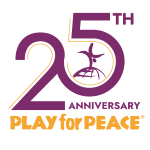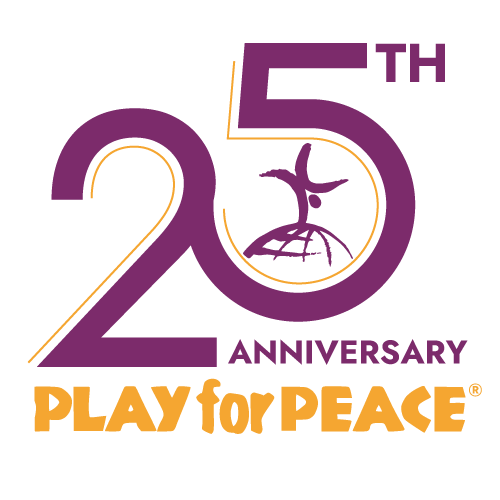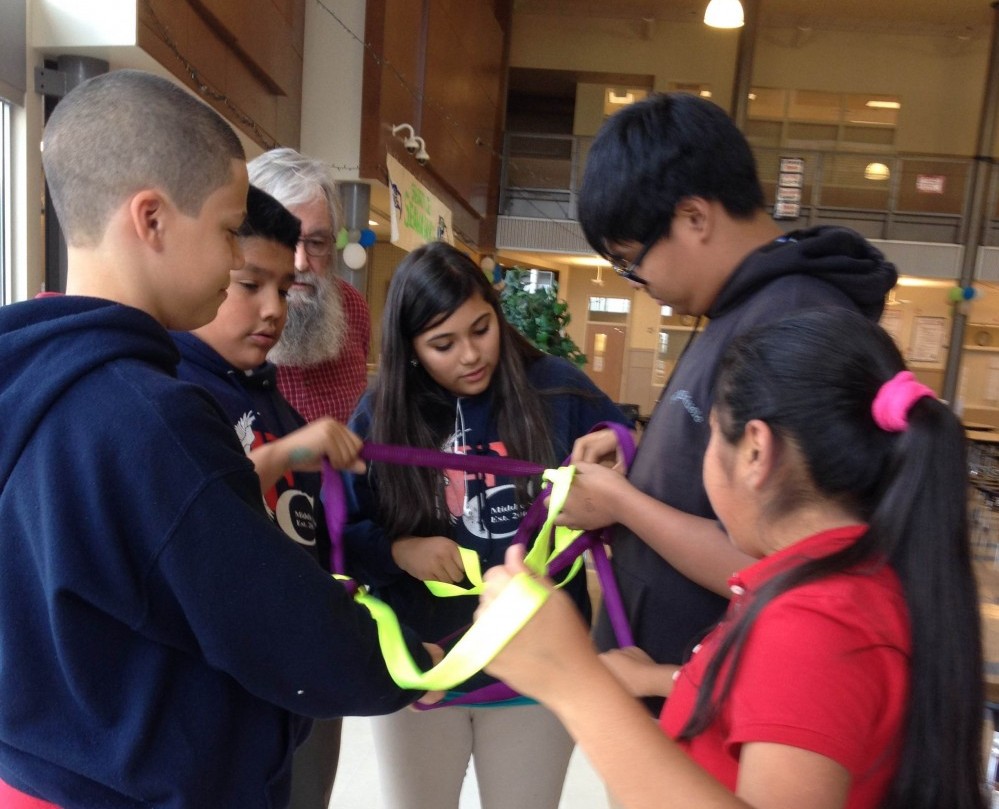“We could play with everyone, not just people we know.”
The First Creek Middle School is located in beautiful Tacoma, Washington. With a majority of Hispanic students, and a smaller mix of African-American, Caucasian, and Asian, First Creek boasts a diverse demographic and a host of after-school programs devoted to mentoring, leisure, and leadership. Despite these opportunities, the school and the larger community face issues of bullying, poverty, and gang-related activities. This is what Sam Tower and his wife, Sarah Storm-Tower, hope to prevent as Play For Peace trainers. In October of 2014, the couple began working with First Creek students, encouraging positive social interactions. They attracted a small group of 6th, 7th, and 8th graders who consistently gathered to share strategies. Nicolas, a sixth grader, comes to nearly all the group’s Play for Peace meetings.
One day, in homeroom, he realized that the students weren't doing much. Rather than wait for the time to pass, he took it upon himself to encourage everyone to get to know each other: together they played the Name Game. Other students use their bilingual capacities to make games even more exciting: singing and playing in Spanish, helping participants practice another language. Why is this so important? In an age of standardized testing and academic pressure, other areas of youth development are often neglected. “Teachers do what they can”, says Sarah, a retired chemistry teacher herself, “but their job is to focus on academics; all the social and emotional learning has been relegated to after-school activities.” This proved true at the First Creek Youth Summit, a full day of activities where students learned about bullying, social justice, and even issues like human trafficking. At one point the school ran a Play For Peace workshop, fifty children playing a variety of games. At the end of the session, Sarah sat down and posed a question: how do you think these games could help prevent bullying? Their answers were incredibly thoughtful and kind.
“We could be friends!” “We could play with everyone, not just people we know.” “We could get along with each other!”
Without having the purpose explained to them in words, the kids understood. Play For Peace is about creating pro-social behavior. As Sam explains, “If gangs are a problem, then we need to create pro-social gangs; a gang to play.”
Recently, the Roosevelt Elementary School began Play For Peace sessions as part of their after-school program. Of the small group that make up the Play for Peace Club at First Creek, at least 3 students have made the trip to Roosevelt every week since the program began. The kids are thrilled at the opportunity to be role models, and to share their knowledge outside of their classroom, and school. “The kids are what I love most about this training,” boasts Sam, a retired 4-H program manager. For Sarah, it is being challenged and having fun. - Written by Deanna Pizzitelli



